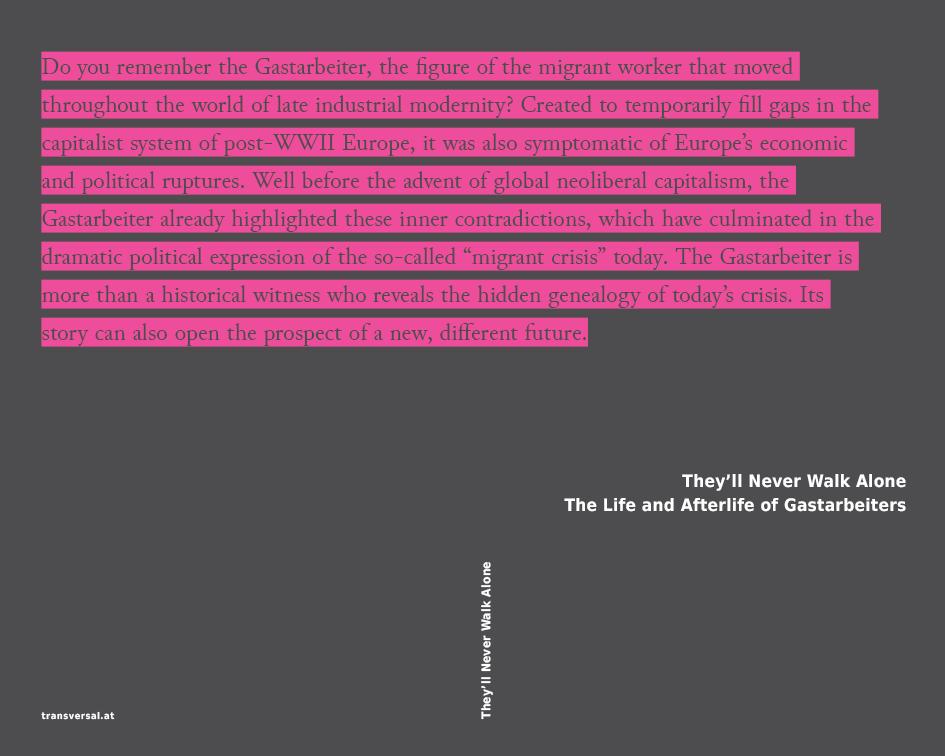They'll Never Walk Alone
The Life and Afterlife of Gastarbeiters
ISBN 978-3-903046-20-7
287 Seiten, broschiert, 15,-- €
The Gastarbeiter, the figure of the migrant worker that circulated throughout the world of late industrial modernity, was created in order to temporarily bridge gaps in the economic system of Western European Capitalism. At the same time, however, it was also a symptom of its early economic and political ruptures. Emerging from the problematic interstices and inequalities of the “developed” North and chronically “underdeveloped” South, between “center” and “periphery,” and originally occupying a legally regulated space (and time) of European constitutional democracies, the Gastarbeiter can be seen today as a sort of avant-garde figure that stood at the crossroads of the ideologically hybrid and shifting frontiers between capitalism and socialism. This early messenger of global transformation highlights not only the collapse of socialism and the development of a global neoliberal capitalism. It also points to the inner contradictions of the latter that have developed into a full-fledged crisis in recent years, which have, not by chance, found their dramatic political expression in the current so-called "crisis" of refugees and migrants. The old figure of the Gastarbeiter, therefore, seems to be at the very core of a hidden genealogy of today’s so-called "crisis" – making it necessary to disclose this genealogy across old and new ideological divides and political interests, and to thus reconnect our present with the past in order to not only understand the current "crisis," but to open the prospect of a new, changed future.
Contributions by Manuela Bojadžijev, Boris Buden, Keti Chukrov, Jana Dolečki, Lina Dokuzović, Amir Hodžić, Ana Hoffner, Margareta Kern, Serhat Karakayali, Katja Kobolt, Davor Konjikušić / Sandro Mezzadra, Monika Mokre, Stefan Nowotny, Jon Solomon; including contributions from the conference discussion, featuring Kinan Abood, Naser Bahrami, Margareta Bush, Mate Ćosić, Pêdra Costa, Yarden Daher, Petja Dimitrova, and Ivana Marjanović.
This book is part of They were, those people, a kind of solution (http://kindofsolution.org), a co-operation project by What, How & for Whom/WHW (Zagreb), Tensta konsthall (Stockholm), Centre for Peace Studies/CMS (Zagreb) and eipcp (Vienna).
They were, those people, a kind of solution is co-funded by the Creative Europe programme of the European Union. The eipcp's participation in this project is also supported by the Arts and Culture Division of the Federal Chancellery of Austria.
The European Commission support for the production of this publication does not constitute an endorsement of the contents which reflects the views only of the author, and the Commission cannot be held responsible for any use which may be made of the information contained therein.



